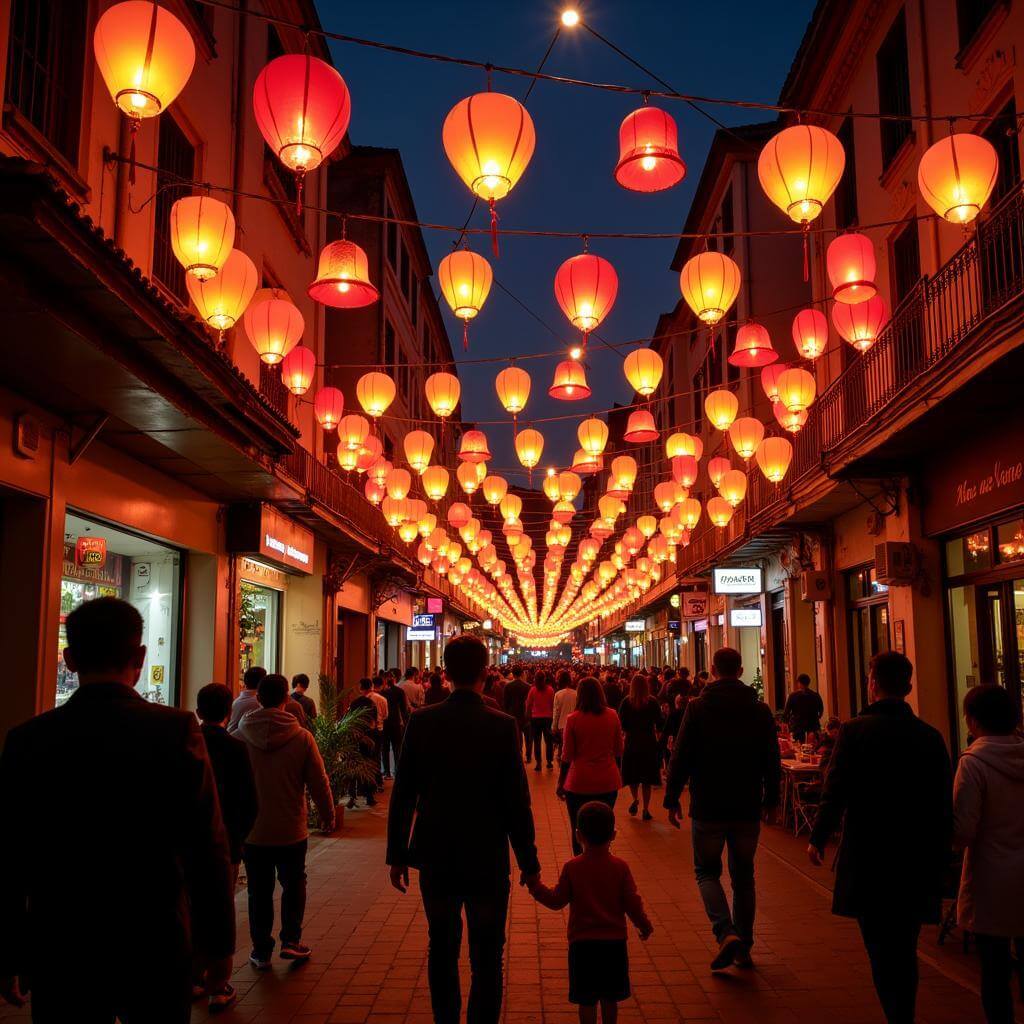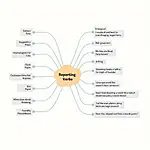Describing a cultural event you attended in your city is a common topic in IELTS Speaking tests. This theme allows examiners to assess your ability to articulate personal experiences, cultural awareness, and language proficiency. Let’s explore how to excel in this speaking task and boost your IELTS score.
Part 1: Introduction and Interview
In this section, the examiner may ask general questions about cultural events. Here are some potential questions and sample answers:
- Do you enjoy attending cultural events?
- What types of cultural events are popular in your city?
- How often do you participate in cultural activities?
Let’s focus on the first question:
Examiner: Do you enjoy attending cultural events?
Sample answer (Band 7-8):
“Absolutely! I find cultural events fascinating as they offer a unique glimpse into different traditions and customs. They’re not just entertaining but also educational, allowing me to broaden my horizons and gain a deeper understanding of various cultures. Whether it’s a traditional music festival or an art exhibition, I always leave these events feeling enriched and inspired.”
Part 2: Long Turn (Cue Card)
Now, let’s move on to the main task. Here’s a sample cue card related to describing a cultural event:
Describe a cultural event in your city that you attended
You should say:
- What the event was
- When and where it took place
- Who you went with
- And explain why you enjoyed it or found it interesting
Sample answer (Band 8-9):
“I’d like to talk about the Lantern Festival, a captivating cultural event I attended last year in my hometown of Hanoi. This vibrant celebration takes place on the 15th day of the first lunar month, marking the end of the Chinese New Year festivities.
The event was held in the heart of the Old Quarter, transforming the ancient streets into a mesmerizing spectacle of colorful lanterns and traditional decorations. I went with a group of close friends, all eager to immerse ourselves in this time-honored tradition.
What made this event particularly enjoyable was the perfect blend of ancient customs and modern interpretations. We were treated to stunning displays of intricately designed lanterns, ranging from classic shapes like lotuses and dragons to more contemporary forms. The air was filled with the delightful aroma of traditional foods and the sound of folk music, creating an atmosphere that was both festive and nostalgic.
One of the highlights was participating in the lantern-releasing ceremony by the Hoan Kiem Lake. As we set our lanterns afloat, watching them drift across the water while making wishes, I felt a profound sense of connection to my cultural heritage and to the community around me.
What I found most interesting about this event was how it brought together people from all walks of life. Young and old, locals and tourists alike, everyone was united in celebration, sharing in the joy and wonder of this ancient tradition. It was a powerful reminder of how cultural events can bridge generational and cultural gaps, fostering a sense of unity and shared identity.
In conclusion, attending the Lantern Festival was not just an enjoyable experience but also a deeply meaningful one. It allowed me to appreciate the rich cultural tapestry of my city and reinforced the importance of preserving and celebrating our traditions in the modern world.”
 Lantern Festival in Hanoi Old Quarter
Lantern Festival in Hanoi Old Quarter
Examiner: That sounds like a wonderful experience. How do you think such cultural events impact the local community?
Sample answer (Band 8-9):
“I believe cultural events like the Lantern Festival have a profound and multifaceted impact on the local community. Firstly, they serve as a catalyst for social cohesion, bringing people together and fostering a sense of shared identity and pride in our cultural heritage. This collective experience can strengthen community bonds and promote understanding between different generations and social groups.
Moreover, these events often provide a significant boost to the local economy. They attract tourists, stimulate local businesses, and create opportunities for artisans and performers to showcase their talents. This economic injection can be particularly valuable for preserving traditional crafts and art forms that might otherwise struggle to survive in the modern world.
Additionally, cultural events play a crucial role in preserving and transmitting cultural knowledge and traditions to younger generations. They offer an interactive and engaging way for children and young adults to connect with their roots and understand the significance of various customs and rituals.
Lastly, I think these events contribute to the cultural vibrancy and diversity of the city, making it a more attractive place to live and visit. They enhance the city’s reputation as a cultural hub, which can have long-term benefits in terms of tourism and international recognition.
In essence, cultural events like the Lantern Festival act as a bridge between past and present, ensuring that our rich cultural heritage continues to thrive and evolve in the contemporary world.”
Part 3: Two-way Discussion
Examiner: How do you think cultural events in cities have changed over the years?
Sample answer (Band 7-8):
“Cultural events in cities have undergone significant transformations over the years. One notable change is the increasing scale and diversity of these events. In the past, cultural celebrations were often smaller, community-based affairs, but now many have evolved into large-scale festivals attracting international audiences.
Technology has also played a crucial role in reshaping these events. Social media and digital platforms have made it easier to promote and share information about cultural events, expanding their reach and attracting more diverse participants. Additionally, modern audiovisual technologies have enhanced the spectacle of these events, creating more immersive and interactive experiences.
Another important shift is the growing emphasis on inclusivity and cultural exchange. Many modern cultural events now strive to represent multiple traditions and perspectives, fostering cross-cultural understanding and appreciation. This approach reflects our increasingly globalized world and the diverse makeup of modern urban populations.
However, with these changes comes the challenge of balancing tradition with innovation. Event organizers often grapple with how to maintain the authenticity and cultural significance of these celebrations while making them relevant and appealing to contemporary audiences.
Overall, I believe these changes have largely been positive, making cultural events more accessible, engaging, and relevant to a wider audience, while still preserving their core cultural values and traditions.”
Key Vocabulary and Phrases
To enhance your IELTS Speaking performance, consider using these advanced vocabulary items and phrases:
-
Captivating /ˈkæptɪveɪtɪŋ/ (adjective): Fascinating or attractive
Example: “The captivating performances kept the audience spellbound.” -
Time-honored /taɪm ˈɒnəd/ (adjective): Respected because of long tradition
Example: “The festival showcased many time-honored customs of our culture.” -
Mesmerizing /ˈmezməraɪzɪŋ/ (adjective): Capturing one’s complete attention
Example: “The intricate lantern displays were truly mesmerizing.” -
Immerse /ɪˈmɜːs/ (verb): To involve oneself deeply in an activity or interest
Example: “Attending the festival allowed me to immerse myself in my cultural heritage.” -
Catalyst /ˈkætəlɪst/ (noun): Something that causes an important event to happen
Example: “Cultural events often serve as a catalyst for community bonding.” -
Multifaceted /ˌmʌltɪˈfæsɪtɪd/ (adjective): Having many different aspects or features
Example: “The festival had a multifaceted impact on our city, affecting everything from tourism to local pride.”
Examiner’s Advice
To achieve a high score in the IELTS Speaking test when describing cultural events:
-
Develop your vocabulary: Use a range of descriptive adjectives and idiomatic expressions to make your description vivid and engaging.
-
Structure your answer: Organize your thoughts logically, covering all points in the cue card and expanding on them naturally.
-
Provide specific details: Include sensory details and personal reflections to make your account more authentic and interesting.
-
Show cultural awareness: Demonstrate understanding of the cultural significance of the event and its impact on the community.
-
Practice fluency: Aim for smooth delivery without long pauses. Regular practice with timed speaking exercises can help improve your fluency.
-
Engage with the topic: Show genuine interest and enthusiasm when discussing the cultural event. This helps to maintain the examiner’s interest and demonstrates your language skills more effectively.
By following these tips and incorporating advanced vocabulary, you’ll be well-prepared to excel in describing cultural events in your IELTS Speaking test. Remember, the key is to practice regularly and to speak with confidence and authenticity.
For more practice on similar topics, you might find it helpful to describe a cultural performance you attended or describe an event where you met new people. These exercises will further enhance your ability to discuss various aspects of events and social interactions, which are common themes in IELTS Speaking tests.


